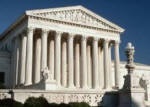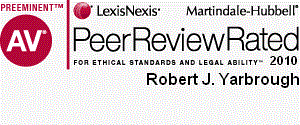Newsletter Issue 65 - July 2014
In this issue:
Copyrighting short phrases
Trademarking personal names
Supreme Court abstraction
Ask Dr. Copyright ...
Dear Doc:
Seems to me that us vegetarians don't get no respect in court. I
heard that "Lettuce Turnip the Beet" got ripped off by that infamous
pirate and parachute flapping no-good Gymboree Corporation, and the
judge wouldn't lift a finger to help. What gives?
Signed,
Rootin' for the Little Guy
Dear Little Root:
Since 2011, Elektra Printz Gorski (wow, say THAT three times fast!)
has sold T-shirts bearing the phrase, "lettuce turnip the beet" to
people who, it seems, like to confuse small children with homophones
(and don't get me started on equal rights, or there's gonna be a
rumble...) She sold these clothes in the the SoHo neighborhood of
New York, and on line at etsy.com. (By the way, SoHo is a
contraction of the terms "So...Hope You Can Afford to Shop Here",
but the Doc digresses.) Gorski registered a copyright in her phrase,
as well as two trademarks for it. Gorski said that, "Gorski's light
grey heather shirt for children is widely considered one of the most
popular children's products ever pinned on Pinterest under their
'Popular' heading and has over 120,000 product views on Etsy making
it one of the most popular products ever on Etsy." Wow!
Then, quicker than you can sing "Gymbo the Clown Goes Up and Down"
731 times, the Gymboree Corporation starts selling shirts that say,
you guessed it, "Lettuce Turnip the Beet". Of course, Gorski sued.
Gymbo moved to dismiss claiming that you can't protect an
"arrangement of a short phrase".
Judge Lucy Koh, the same judge who has ruled on the giant law suits
between Apple and Samsung that have involved over $1 BILLION DOLLARS
in damages,
ruled, at least in part, for Gymboree. Seems that
copyright can't protect just a few words - although how many is
enough is not spelled out in her ruling.
On the bright side for Gorski, she also has two registered
trademarks, and Judge Koh did not dismiss her trademark claims
against Gymboree, finding that any defenses it may have are
premature at this stage of the case.
The Doc certainly can sympathize with all the vegetarians out there.
In fact, one of the Doc's favorite revolutionary anthems supports
vege-civil disobedience. If you, too, have a short phrase that you
wrote on a slip of paper and mailed to yourself, thinking that you
now have a copyright, be sure to speak to one of the attorneys at
LW&H. They will gently tell you that you've wasted a stamp, and help
you to get actual legal protection for your products.
Let's "ketchup" next month. Until then, I remain your libertarian,
nonsectarian, vegetarian (well, except for the occasional 42 oz.
porterhouse) friend.
The Doc.
Trademarks, Personal Names, and Chocolate 
A client recently asked whether he could apply to register his
personal name as a trademark. Of course, just ask Lebron James,
Sarah Palin, Arnold Schwarzeneggr, or Elvis (if you catch sight of
him), all of whom registered their names as trademarks. Does that
mean if your name is "Joe," you can register "Joe's Bar" for
restaurant services? Not exactly, there are some rules.
First, your name must be distinctive. That is, when people see your
name they have to first think of the goods or services you are
branding, not you personally. How does this happen? Well, you use
your name as a trademark, you spend a lot of money investing in the
branding process, and, if you're successful, it eventually happens.
It's called "secondary meaning". We've written about secondary
meaning or acquired distinctiveness before.
Second, your name cannot be confusingly similar with other
trademarks in use. So, if your name is Joe and you run a bar,
imagine how hard its going to be to prevent confusion between your
bar and "Joe's Bar" on the other side of town. (Of course, you
cannot register a mark with the U.S. Patent and Trademark Office
unless you are using it in interstate commerce).
Finally, if the person is still alive, you have to obtain that
person's permission to use his or her name as a trademark. If it's
your name, you also have to file an affidavit saying so.
Having a famous name but not being famous can also get you into
trouble. Take for example the recent news story about
Maryland
State Senator Steve Hershey. During his recent political campaign,
Hershey was sued by Hershey Company for using brown rectangular
boxes around his name in white lettering, resembling Hershey
Company's famous logo. The Hershey Company didn't object to
Hershey's using his name - after all, it's his name - but it did
object to his using "Hershey" in a manner that suggested an
endorsement or sponsorship by the company. Even stranger is that
Hershey had the same dispute with the Hershey Company in previous
campaigns.
On July 22nd, the federal district court issued an
injunction against Hershey, preventing him from using his signs.
The court opined that his signage suggested an endorsement where no
endorsement existed. We still await a final ruling.
Commentary: An Abstract Fairy Tail

Last month the Supreme Court decided the case of
Alice v. CLS
Bank and wandered around once again in wonderland. Let me explain.
The U.S. Supreme Court, as judge made law, has grafted onto patent
law the concepts that one cannot obtain a patent on a law of nature,
a natural phenomenon, or an abstract idea. The problem from the
perspective of a patent applicant is that the exclusions are
relatively undefined. In particular, the definition, or lack
thereof, for the term "abstract."
Patent examiners routinely reject applications that seem to have a
mathematical expression at their core, and during the past
approximately 30 years attorneys at our firm have prosecuted
sophisticated computer/software implemented inventions and have
frequently had to overcome patent office rejections based upon the
notion that software implemented inventions were "abstract."
Consequently, court decisions construing that term are of heightened
interest to our clients.
There was hope that Alice would clarify the Court's definition of
abstract. Alice involved a computerized method for implementing the
financial concept of an intermediate financial settlement. Without
needing to go into the details of the financial concept, it is
sufficient to note that the Court apparently takes a dim view of
financial inventions. Alice was found to be no more than a
fundamental economic practice and therefore "abstract" and
unpatentable. Further, the Court concluded that the mere recitation
of a computer cannot transform an abstract idea into a
patent-eligible invention.
As for guidance, the Court said: "In any event, we need not labor to
delimit the precise contours of the 'abstract ideas' category in
this case." Apparently, like pornography, the Court knows something
is abstract when they see it. The rest of us are left to wander
around looking for a way out of the rabbit hole.

